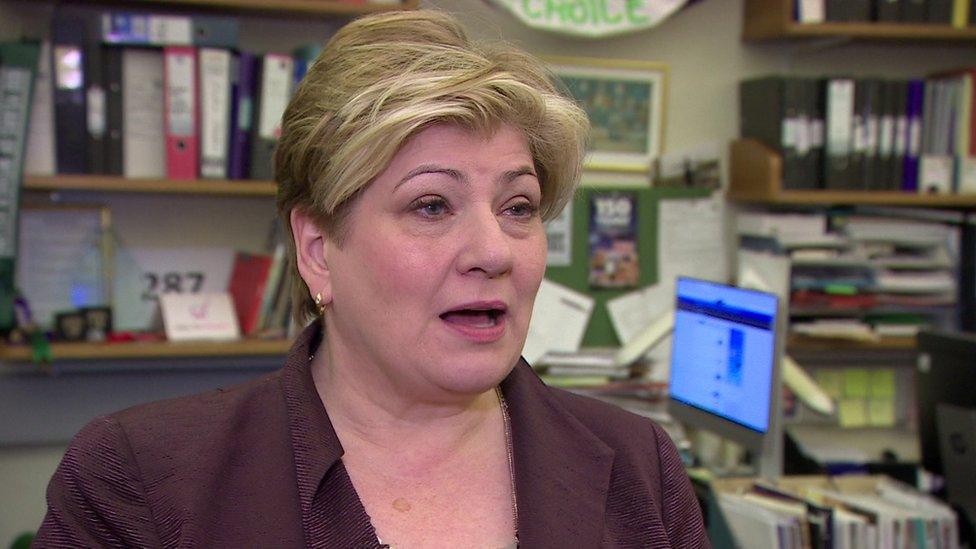Labour leadership: Sir Keir Starmer enters race
- Published
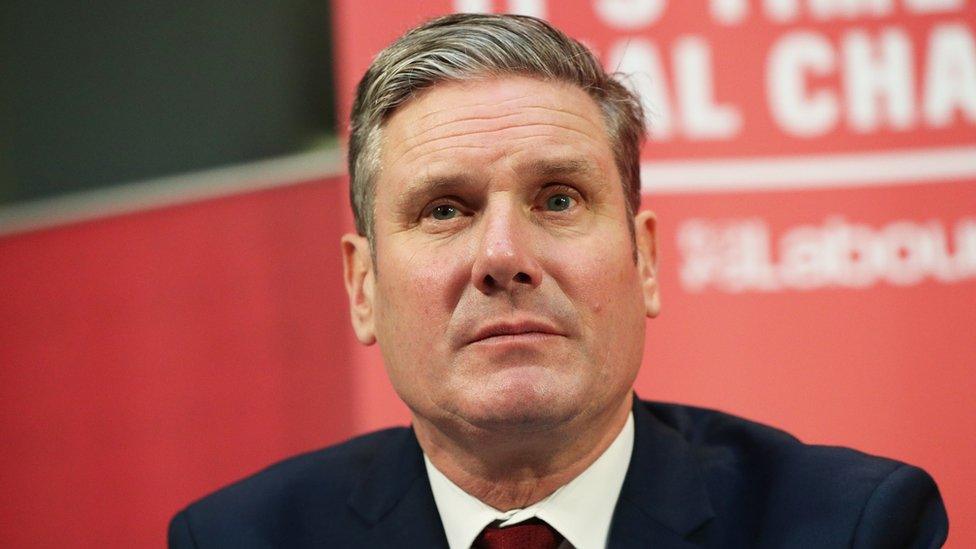
Sir Keir Starmer has confirmed he is standing in the contest to replace Jeremy Corbyn as Labour leader.
The shadow Brexit secretary, seen as a frontrunner in the contest, has written in the Sunday Mirror, external that Labour needs to "rebuild fast" to restore trust.
It comes hours after MPs Lisa Nandy and Jess Phillips said they were entering the race.
The contest was called after Mr Corbyn announced he would stand down as leader after Labour's heavy election defeat.
Shadow foreign secretary Emily Thornberry and shadow treasury minister Clive Lewis have also confirmed they are standing.
Shadow business secretary Rebecca Long-Bailey, seen as another potential frontrunner, is also expected to officially join the contest.
'Rebuild and win'
Declaring his candidacy in the Sunday Mirror while releasing a video on Twitter, external, Sir Keir said Labour needed to listen to voters if it was to "restore trust".
Allow X content?
This article contains content provided by X. We ask for your permission before anything is loaded, as they may be using cookies and other technologies. You may want to read X’s cookie policy, external and privacy policy, external before accepting. To view this content choose ‘accept and continue’.

Sir Keir, who backed Remain in the EU referendum and was one of the leading figures in the party advocating for a new referendum, will kick off his leadership bid by visiting Brexit-backing Stevenage on Sunday.
Some of Mr Corbyn's allies have blamed Sir Keir's Brexit stance for the party's disastrous election performance last month, where much of its traditional, Leave-backing Northern strongholds fell to the Conservatives.
"We cannot bury our head in the sand: Labour must rebuild and fast. We have to restore trust in our party as a force for change and a force for good," Sir Keir wrote in the paper.
"The millions of people who needed change at the last election still need change. The moral fight against poverty, inequality and injustice must continue."
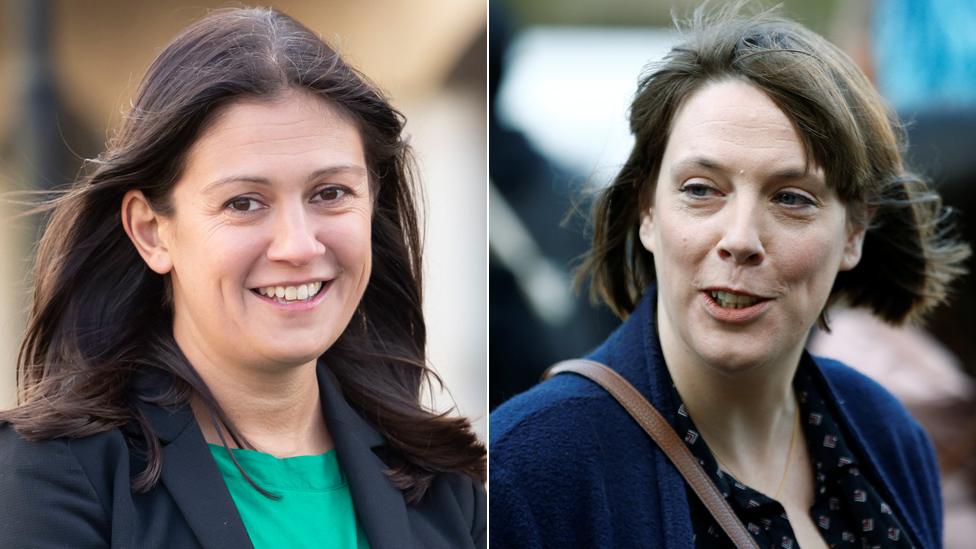
Before Sir Keir, Lisa Nandy and Jess Philips were the latest MPs to enter the contest
However, Sir Keir said Labour could not "lose sight of our values or retreat from the radicalism of the past few years".
Among other things, he said the party should push for a "Green New Deal" to fight climate change and make the case for a "radically transformed economy that empowers trade unions and communities that have been left behind".
And he also called for a "human rights approach" to foreign policy and international relations, accusing ministers of "failing to hold an irresponsible US president to account" over the situation in Iran.

Sir Keir's background
The human rights lawyer, who was made Queen's Counsel in 2002, served as head of the Crown Prosecution Service and accepted a knighthood in 2014, and has struggled to shake-off perceptions of privilege.
The 57-year-old was named after Labour Party founder Keir Hardie and has emphasised his upbringing by a toolmaker father and nurse mother in London's Southwark when dismissing allegations he is too middle-class to speak to the party's historic heartlands.
His CV includes co-founding the renowned Doughty Street Chambers and advising the Policing Board to ensure the Police Service of Northern Ireland complied with human rights laws.
He entered Parliament as the MP for Holborn and St Pancras in 2015.

A timetable for the leadership election - and any rule changes - is set to be decided by the party's ruling National Executive Committee (NEC) on Monday.
Under current rules, would-be candidates for both the leader and deputy leader roles must first be nominated by more than 20 MPs.
They must also secure nominations from at least 5% of Labour's constituency parties or three affiliated bodies - two of which must be trade unions.

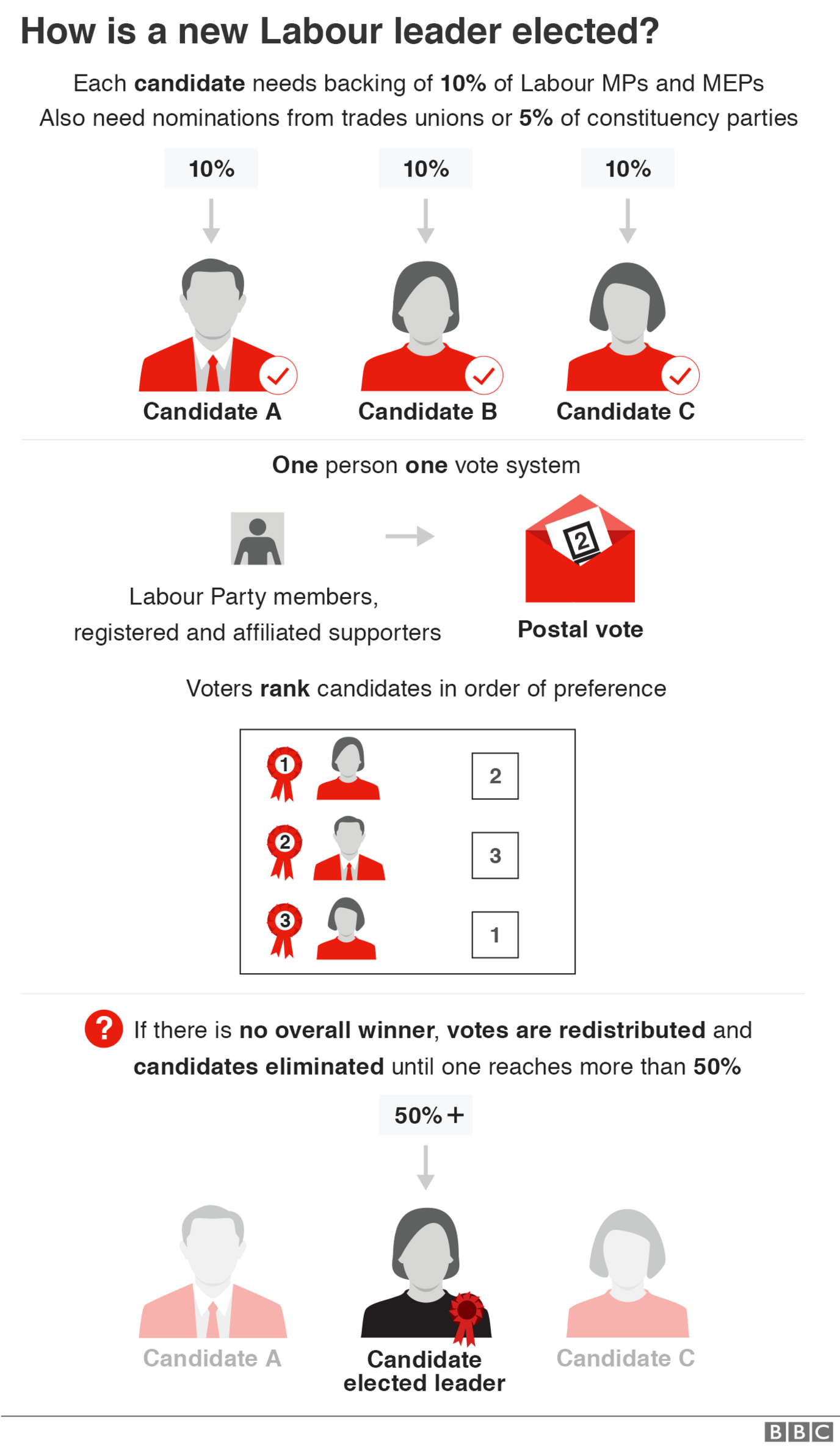

- Published18 February 2020
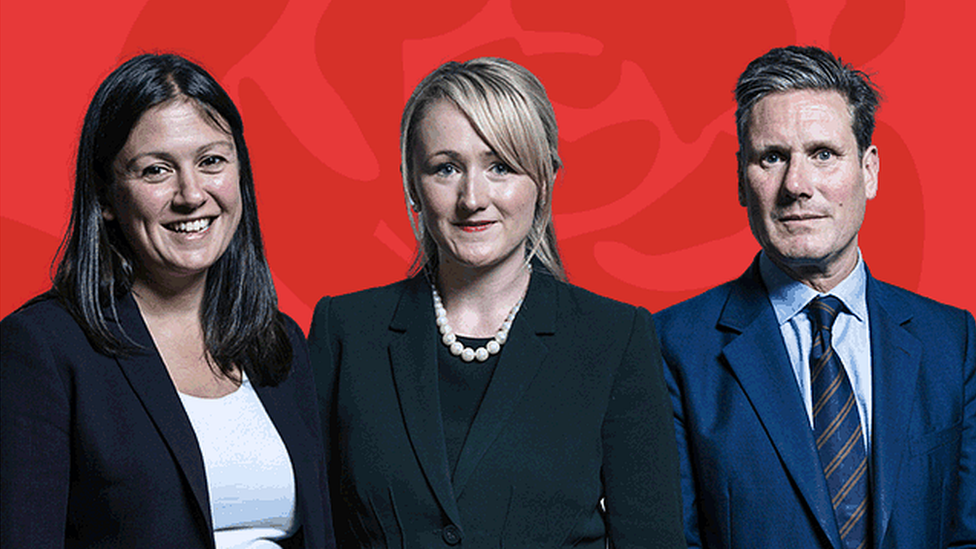
- Published3 January 2020
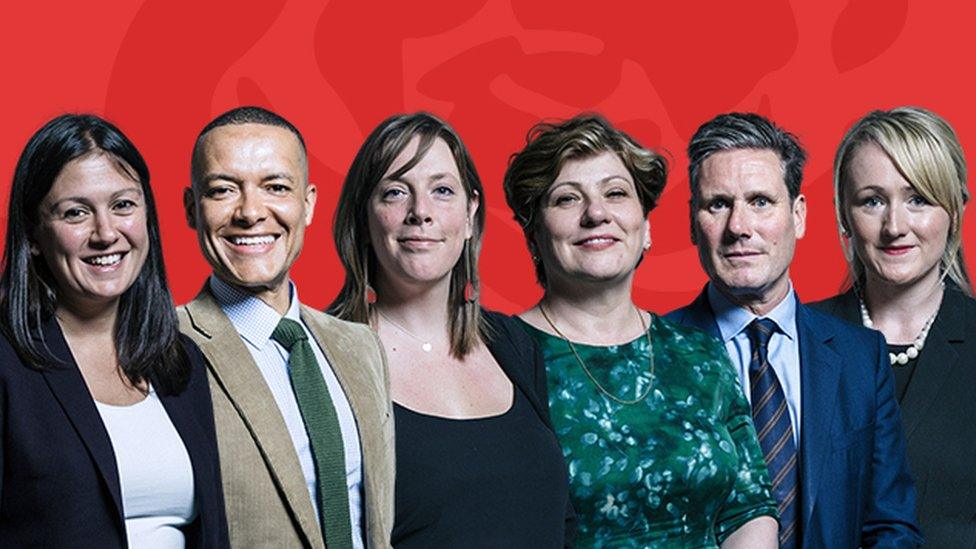
- Published4 January 2020
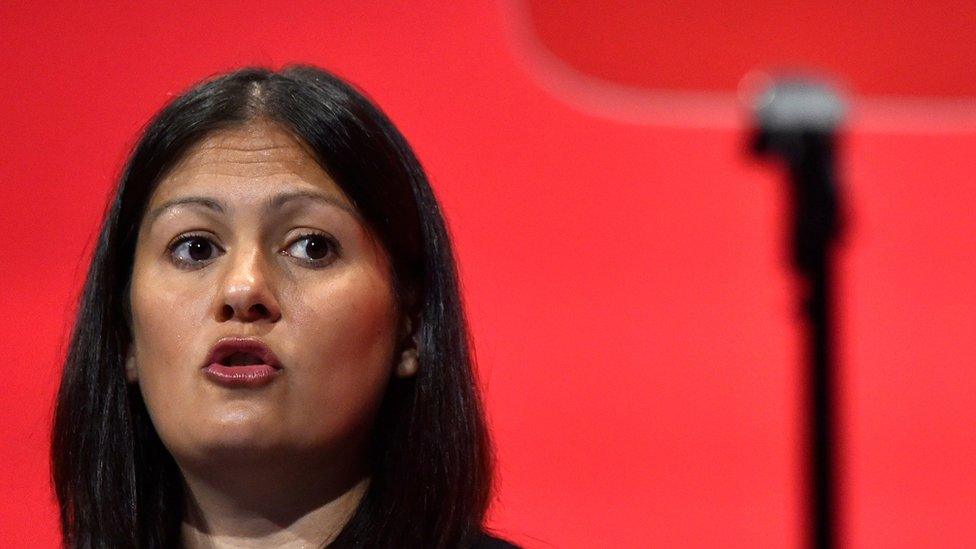
- Published3 January 2020
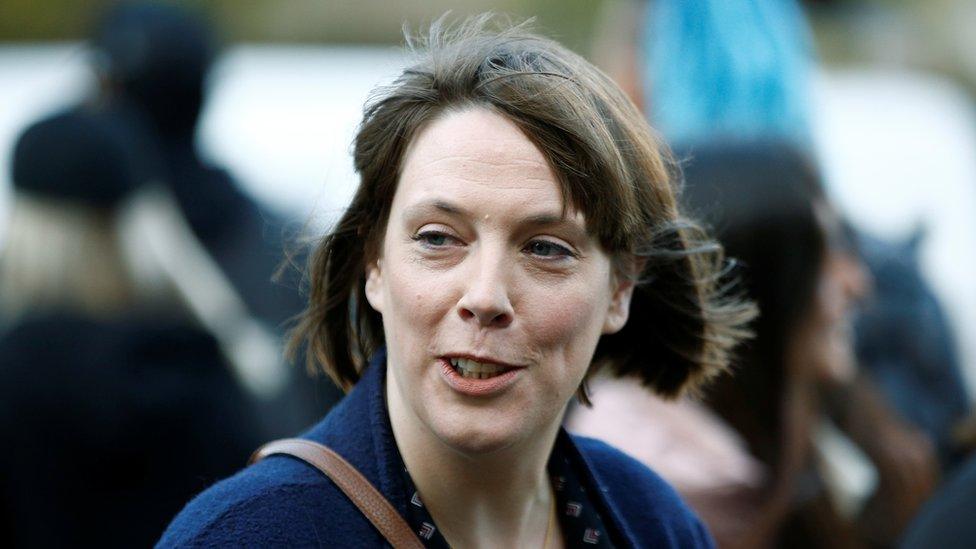
- Published19 December 2019
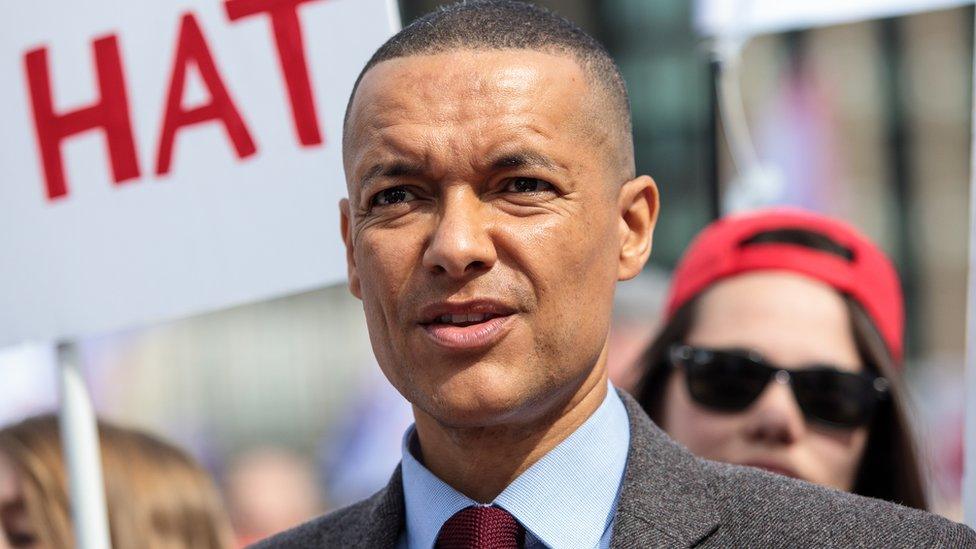
- Published18 December 2019
